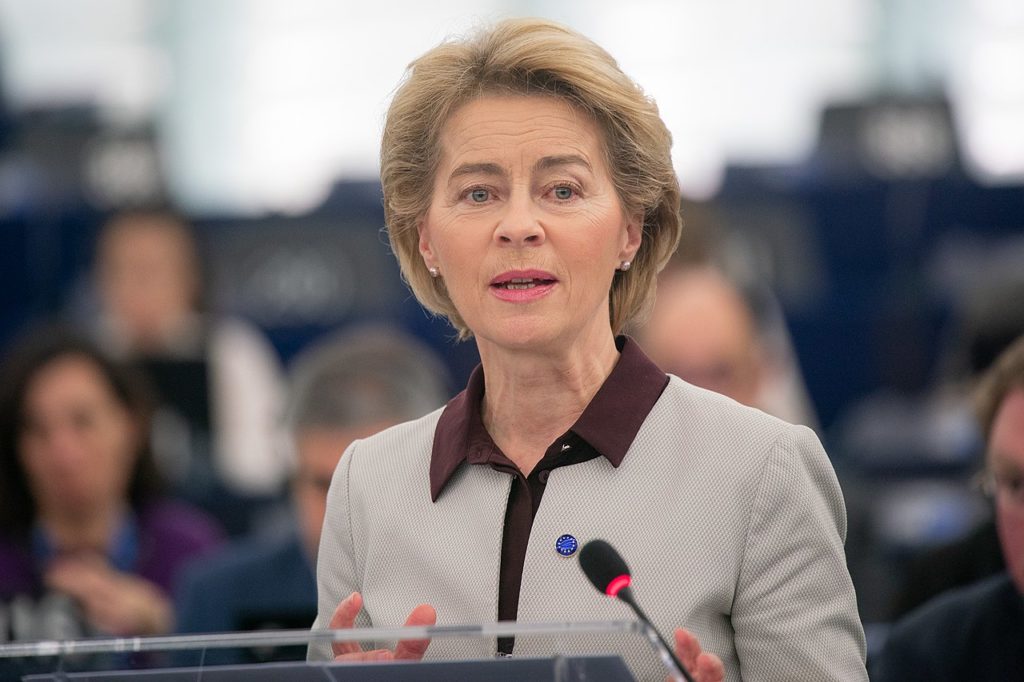The European Commission has published parts of its contract with vaccine developer AstraZeneca (AZ) in an attempt to settle the ongoing dispute over vaccine deliveries.
The publication of the Advance Purchase Agreement (APA) is intended to clarify the issue of whether AZ is in breach of contract in failing to deliver the promised number of doses of its Covid-19 vaccine.
The EU had contracted to take 300 million doses of the AZ vaccine, with an option on 100 million more. The first shipment should have been 80 million doses, but the company has now said production problems at one of its manufacturing plants means it will only be able to deliver 31 million doses, with a possible nine million more added.
Accusations have come from some quarters claiming the AZ is cutting the EU’s delivery to be able to sell the vaccines elsewhere, including the UK, which the company has denied.
Along the way, the EU has made threatening noises about impounding would-be exports from factories in the EU – including one in Belgium, where the problems were reported – to make up the shortfall in the contracted amount. That also includes, according to the contract, two plants in the UK, considered for the purposes of this transaction to be in the EU.
AZ has argued that the contract between the two parties only obliges AZ to provide the quantities stated “to the best of their ability,” and that production problems constitute a form of force majeure.
Now the APA has been published in part (some passages on prices and other confidential matters have been redacted) and it does indeed contain similar wording. In the preamble to the contract, known officially as the recitals, we read the following:
WHEREAS, as part of that scale-up, AstraZeneca has committed to use its Best Reasonable Efforts (as defined below) to build capacity to manufacture 300 million Doses of the Vaccine, at no profit and no loss to AstraZeneca, at the total cost currently estimated to be [redacted] Euros for distribution within the EU [redacted] (the “Initial Europe Doses”), with an option for the Commission, acting on behalf of the Participating Member States, to order an additional 100 million Doses (the “Optional Doses”).
The definition of the phrase ‘best reasonable efforts’ is defined later, thus:
1.9. “Best Reasonable Efforts” means
(a) in the case of AstraZeneca, the activities and degree of effort that a company of similar size with a similarly-sized infrastructure and similar resources as AstraZeneca would undertake or use in the development and manufacture of a Vaccine at the relevant stage of development or commercialization having regard to the urgent need for a Vaccine to end a global pandemic which is resulting in serious public health issues, restrictions on personal freedoms and economic impact, across the world but taking into account efficacy and safety; […] going on to state the meaning of the term in regard to the EU.
To the lay reader, the definition seems to do little to clear up any dispute. Only a court would eventually be able to decide whether AZ’s production problems fell under the umbrella of the definition.
But one thing could clear up the whole matter, according to legal observers in London, reported by the Guardian. If AZ has been sending shipments to other customers normally while the EU shipment was cut, that would go against their claim to be giving their best reasonable efforts, according to David Greene, president of the Law Society and a contract litigator.
“If they [AZ] gave assurances that they made reasonable best efforts to supply the EU but were in fact diverting material from one place to another, that would on the face of it be a potential breach of obligations to use reasonable best efforts,” he told the paper.
Speaking on German radio this morning, Commission president Ursula von der Leyen said, “There are binding orders and the contract is crystal clear,” she said. “AstraZeneca has also explicitly assured us in this contract that no other obligations would prevent the contract from being fulfilled.”
The AstraZeneca vaccine is expected to be approved for use in the EU by the European Medicines Agency tomorrow. It is already being rolled out in the UK.
Alan Hope
The Brussels Times

